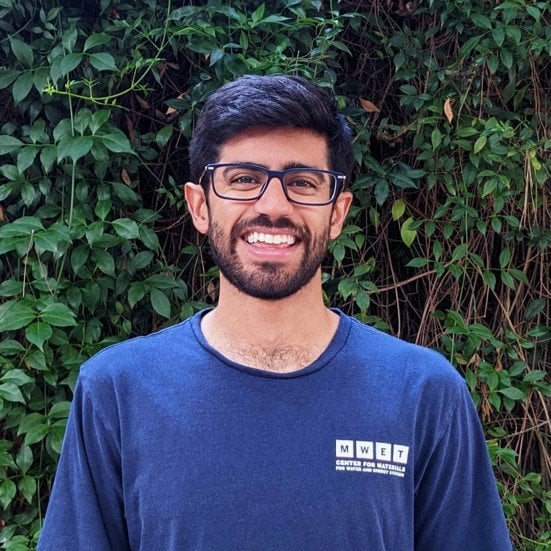February 11, 2025
10:30 am / 11:30 am
Venue
Shaffer 3
Note: This seminar is also available to watch over Zoom.
Title: Ion and Water Transport in Polymeric Materials for Sustainable Separations
Abstract: Polymeric materials that selectively regulate ion and water transport rates are essential components of technologies that address our pressing need for clean water and energy, including reverse osmosis, batteries, and fuel cells. For example, polymer membranes are widely employed to desalinate seawater due, in part, to their energy efficiency relative to thermal technologies. Designing polymers with transport properties tailored to specific separation goals would significantly advance emerging processes (e.g., lithium extraction and electrochemical CO2 conversion) and vastly improve existing membrane processes. However, many molecular interactions underpinning permeability, conductivity, and selectivity in such polymers are poorly understood, impeding the development of new materials with desired performance. To address some of these knowledge gaps, this presentation will detail fundamental thermodynamic and transport studies in materials used in water and energy applications. The first part of this presentation will focus on state-of-the-art ion exchange membranes and will demonstrate the mechanism of water transport and the importance of ion pairing in such materials. A particular point of emphasis will be the development of thermodynamic based models that link membrane performance with basic polymer and solution properties. The utility, and gaps therein, of these models to predict experimental data without adjustable parameters will be discussed. The second part of this presentation will focus on polyether-based electrolytes relevant to battery applications. Specifically, the influence of molecular-level, ion-water-polymer interactions on ionic conductivity in materials systematically hydrated from dry conditions will be discussed. The transition in ion transport mechanisms occurring between rigorously dry and highly swollen polymers will be emphasized. The implications of results from each study on design strategies for materials that exhibit specific separation properties will be addressed.
Bio: Rahul Sujanani is currently a postdoctoral scholar in Professor Rachel Segalman’s group at the University of California, Santa Barbara (UCSB). Rahul’s research focuses on understanding the physics of small molecule transport across polymer-solution interfaces in order to design next-generation materials for water, energy, and environmental separations. He completed his B.S. in Chemical Engineering from Rensselaer Polytechnic Institute in 2016 and received his Ph.D. in Chemical Engineering from the University of Texas at Austin under the guidance of Professor Benny Freeman in 2022. During his Ph.D., his work focused on characterizing and modeling ion and water transport in membranes for water treatment processes. At UCSB, he is studying the role of hydration on ion transport in polymer electrolytes used in energy systems.
